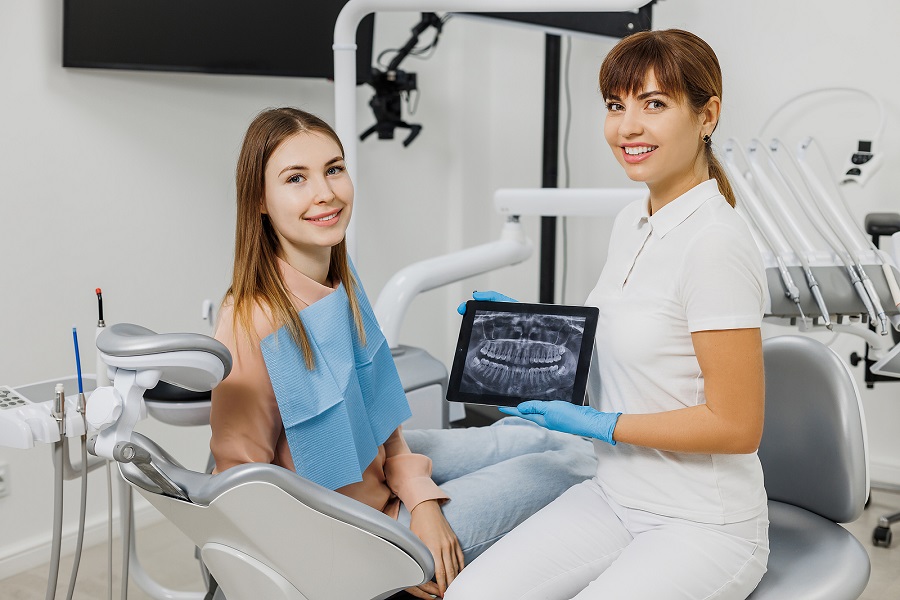The Role of Dental Crowns in Restorative Dentistry: More Than Just a Cosmetic Fix
Posted by James Hart Jan 09, 2025

Dental crowns are often seen as a quick fix for a smile, but their role in restorative dentistry goes far beyond mere aesthetics. These versatile dental solutions provide strength and support to damaged teeth, enhancing both function and appearance. Whether you're dealing with decay, injury, or wear over time, dental crowns can be your ticket to a healthier mouth and renewed confidence.
If you’re considering dental crowns in Pensacola, FL, you’re not alone. Many people seek out this effective treatment to restore their oral health while also improving the beauty of their smiles. Let’s explore what dental crowns are all about and how they can play an essential role in your journey toward optimal oral well-being.
What are Dental Crowns?
Dental crowns are custom-made caps designed to cover and protect damaged or weakened teeth. They fit snugly over the existing tooth structure, restoring its shape, size, and strength.
Crafted from various materials like porcelain, metal, or resin, crowns can be tailored to match your natural tooth color for a seamless appearance. This makes them an excellent choice for visible areas in your smile.
Beyond aesthetics, dental crowns serve a critical function in preserving the integrity of your teeth. Encasing a compromised tooth prevents further deterioration and helps maintain proper bite alignment.
Whether it’s due to decay or injury, these restorations support overall oral health while providing durability that can last for many years with proper care.
The Different Types of Dental Crowns
Dental crowns come in various materials, each serving specific needs and preferences.
- Porcelain crowns are popular for their natural appearance. They blend seamlessly with surrounding teeth, making them ideal for front teeth restorations.
- Metal crowns offer strength and durability. Typically made from gold or other alloys, they withstand significant biting pressure and are often used for molars.
- Resin crowns present a cost-effective option. While less durable than porcelain or metal, they provide an aesthetic solution for minor repairs.
- Ceramic crowns combine the best of both worlds: aesthetics and reliability. They mimic the translucence of natural teeth while offering decent strength.
- Temporary crowns serve as placeholders during treatment. These help maintain tooth function until a permanent crown is placed. Each type has its unique benefits tailored to individual dental needs in Pensacola, FL. Contact us to learn more.
Benefits of Dental Crowns in Restorative Dentistry
Dental crowns serve as a cornerstone in restorative dentistry, offering more than just aesthetic appeal. They provide structural support for weakened teeth, allowing patients to maintain their natural smiles while enhancing functionality.
These custom-made caps effectively protect damaged or decayed teeth from further deterioration. They can prevent the risk of fractures, which is especially important for molars that endure significant chewing pressure.
Moreover, dental crowns can improve alignment and bite. By restoring the integrity of a tooth, they help ensure that jaws function harmoniously together.
With various materials available—such as porcelain and metal—patients benefit from options tailored to their specific needs. This versatility allows for both durability and an appealing look that blends seamlessly with existing teeth.
Choosing dental crowns not only preserves oral health but also boosts confidence by improving overall appearance.
Common Uses of Dental Crowns
- Dental crowns serve various essential functions in restorative dentistry. They are often used to protect weak or damaged teeth, providing strength and stability.
- When a tooth has undergone significant decay or trauma, a crown can restore its shape and function. This is crucial for maintaining proper bite alignment and preventing further issues.
- Crowns are also frequently placed after root canal therapy. After such procedures, the remaining tooth structure may not be strong enough to withstand regular use. A crown ensures that it remains functional for years to come.
- Additionally, dental crowns play an important role in anchoring bridges. When replacing missing teeth, they provide support by capping adjacent teeth.
- In cosmetic applications, many choose crowns to enhance their smiles. These restorations can improve aesthetics while ensuring durability and longevity in oral health treatments.
The Procedure for Getting a Dental Crown
Getting a dental crown involves a few straightforward steps. First, your dentist will conduct an examination to assess the tooth that needs repair. This assessment may include X-rays to check for any underlying issues.
Once confirmed, the next step is often preparing the tooth. The dentist will reshape it by removing decay and creating a solid base for the crown. If necessary, this might involve building up the tooth structure with additional material.
After preparation, impressions of your teeth are made. These impressions help create a custom-fit crown tailored just for you. While waiting for your permanent crown, a temporary one is placed to protect your prepared tooth.
When your permanent crown arrives from the lab—usually within two weeks—you’ll return to have it fitted and permanently cemented in place. Adjustments might be made at this stage to ensure comfort and proper alignment.
Caring for Your Dental Crown
Caring for your dental crown is essential for its longevity and effectiveness. Start with regular brushing using a soft-bristled toothbrush. This helps prevent plaque buildup around the crown.
Flossing is just as important. Make sure to gently clean along the gum line where the crown meets your natural tooth. This prevents any food particles from getting trapped, which can lead to decay.
Avoid hard or sticky foods that could potentially dislodge or damage your crown. Chewing ice or biting into hard candies may cause unnecessary stress on it.
Regular dental check-ups are crucial too. Your dentist in Pensacola, FL, can monitor the condition of your crown and address any issues early on.
If you notice any discomfort or changes in how your bite feels, reach out to your dentist promptly for advice and care options tailored to you.
Conclusion: How Dental Crowns Can Improve Your Oral Health and Overall Well-Being
Dental crowns play a crucial role in restorative dentistry, and their importance goes beyond mere aesthetics. They provide strength to weakened teeth, enhance functionality, and prevent further damage. For residents seeking solutions for dental issues in Pensacola, FL, crowns can be a game-changer.
Choosing the right type of crown is essential for achieving optimal results tailored to your specific needs. With various materials available—from porcelain to metal—patients have options that not only match their natural smile but also offer durability.
The benefits are significant. Dental crowns can help restore your bite and relieve discomfort caused by damaged or decayed teeth. They serve as anchors for bridges and cover implants seamlessly while improving overall oral health.
Understanding how they fit into common dental procedures is important too. Whether addressing cavities or providing support after root canal treatment, crowns are versatile tools in modern dentistry.
After receiving a crown, proper care will extend its lifespan significantly. Regular check-ups with your dentist ensure that any potential issues are identified early on.
Investing in dental crowns means investing in your health—both oral and general well-being. The confidence boost from having restored smiles cannot be understated—it affects social interactions and personal happiness alike.
Gulf Coast Dental is located at 1751 W 9 Mile Rd. Pensacola, FL 32534, or call (850) 495-6899 for more information on the advantages of dental crowns.

Working Hours
- MON - THU8:00 am - 4:00 pm
- FRI - SUNClosed






